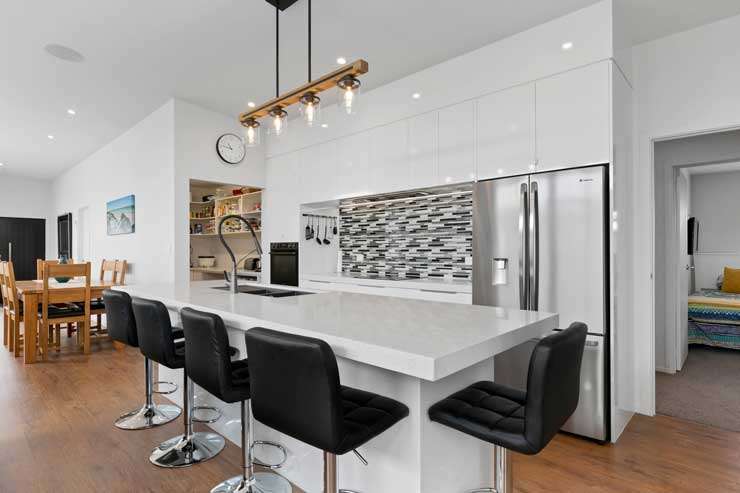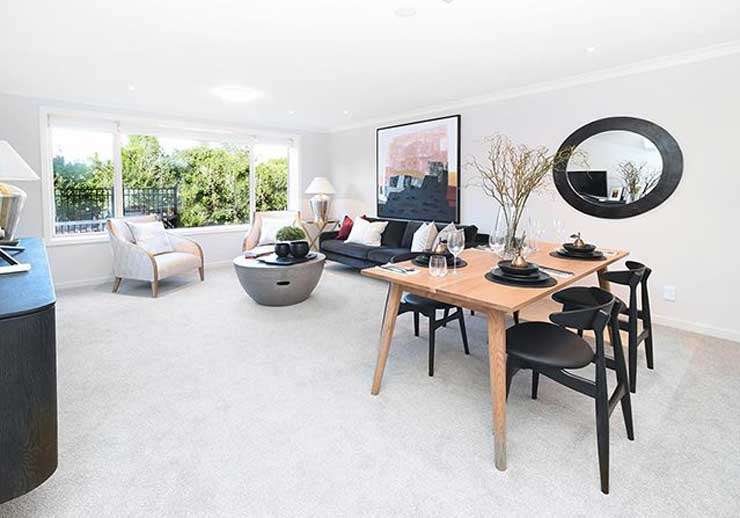When should retirees sell? If the property market is surging, does this make it a good time or bad time to sell?
Retirees can make terrible mistakes with property and financial decisions that can blight their final years. Timing the sale and investing the money wisely doesn’t come easy.
It’s a big call to sell up and downsize, move to a new community, or buy into a retirement village. It comes with financial decision making that not everyone is willing to face or good at.
Every retiree is different. But by the time most people hit the age of 65 their children have usually flown the nest and it might be time for a change in lifestyle. They may have owned the family home for decades and not always kept up with maintenance. Sometimes just doing the mowing is too much of a chore.
Start your property search
In some cases, homeowners have significant capital in their homes, but no savings. That often means downsizing the home to free up capital to supplement New Zealand Superannuation. Sadly, even selling the home doesn’t always provide enough money for a comfortable retirement. There is fierce competition for a small pool of suitable smaller homes, and that competition drives up prices.
Just how much a capital a downsize will extract depends on many factors. For example, the average property value in Auckland is $1.544 million while the average property value in Papamoa, in Tauranga, a favourite destination for Auckland downsizers, is $1.048m, a difference of just under half a million dollars. That might be enough to provide for a comfortable retirement, depending on lifestyle choices and expenses, but those banking on their home to fund their twilight years should be aware that the margins are not as generous as they once were, with the cost of housing in the regions catching up with higher-priced Auckland.
Bayleys agent Andrea Ritchie says that the types of home favoured by downsizers in Papamoa – newish and low-maintenance - tend to sell for a lot more than the average property value. “You’re certainly going to have to wrap a circle around $1.5m,” Ritchie says.

This three-bedroom new-build in Papamoa, Tauranga, was aimed at downsizers. Photo / Supplied
Last month, Bayleys agents Conrad Doyle and Kay Ganley sold a three-bedroom lock-up and leave new-build townhouse on Knightia Drive, in Papamoa, after seeking buyers with budgets of $1.3m-plus.
It’s not hard to see that a downsize might not leave sufficient change for a comfortable retirement. Massey University prepares an annual calculation of how much nest egg New Zealanders need to live in retirement. It gives figures for both “no-frills” retirement and a “choices” one that includes some luxuries.
The latest Retirement Expenditure Guidelines from the Massey New Zealand Fin-Ed Centre indicated a couple living in one of the main centres would need to have saved $809,000 over and above their house to fund the “choices” lifestyle. The figure is $511,000 in regional New Zealand.
The Massey figures assume that people retire aged 65. Those who work beyond that age will not need to save quite as much.
Retirement villages
A popular option for many retirees is to move to a retirement village. Most have a minimum age of 70 or 75.
Typically, residents buy a licence to occupy a unit. They pay a weekly fee, and then when they die or move, the village keeps about 30% of the capital. The remainder of the purchase price, not the resale value, goes to the person’s estate.
Prices vary, but a one-bedroom unit at Ocean Shores Village in Mount Maunganui was selling for $550,000 in late November. In Auckland expect to pay up to $1.9m at Ryman’s William Sanders Village in Devonport, although the percentage taken at the end is only 20%.

Inside one of the units at Ryman’s William Sanders Village in Devonport, Auckland. Photo / Supplied
Weekly fees are $171 at Ocean Shores for a one-bedroom apartment, and $169 capped for life for the William Sanders apartment. But as John Collyns, executive direct of the Retirement Villages Association, points out the weekly fee is typically less than homeowners might pay for rates, insurance, maintenance etc. in their own home.
Other options
Another way to eat the house is to remain in a larger home and take out a reverse equity mortgage such as the ones offered by Heartland Bank and SBS Bank. These mortgages allow retirees to withdraw sums of money from their home equity to live on. The interest is capitalised, meaning it’s not paid until the owner dies or moves on. It’s an expensive route in the long run but suits some homeowners.
Another option taken by some is to move in with family – possibly in a granny flat. This can be a win/win for the extended family with grandparents able to help with childcare. It does tend to happen later in life than 65, however.
Some retirees come up with other creative ways to keep the house but extract some money to supplement NZ Super. They might rent it out and go travelling in their early retirement. It may be to take in foreign students. Or more than a few live in a campervan, boat, or the family bach for a few years.
Where to stash the cash?
Eking out capital to last for life is difficult. Especially if there isn’t quite enough to cover emergencies.
The more conservatively the money is invested the quicker it dwindles away. Retirees who sell their home or rental properties often make the mistake of investing their lump sum in a term deposit. At the time of writing, interest on 12 month term deposits with the high street banks was mostly around 2% before tax, and five years, 3%. With inflation running at 5% year on year, savers lose money.
Many 65-year-olds live 20, 30 or even more years after retirement and therefore need to ensure a good chunk of their money continues growing to at least keep pace with inflation.
A good investment portfolio will split the capital into different chunks. A proportion of the capital that will need to be spent within five years would be invested into term deposits or similar such as cash funds; the money needed in 10 years into bonds; and the remainder into growth assets such as shares.
There is no one-size-fits-all. Some retirees might not feel comfortable with money in volatile investments such as growth funds. Other alternatives include balanced funds, which hold both low and high risk investments.
Retirees who need a steady stream of income now but want to preserve their capital might choose an income fund, which pays a fixed amount per month. The capital should continue to grow over time as well. There is a variety of options such as an income fund, from providers such as Harbour Asset Management, which pays out a regular sum every month. People who want even more certainty can buy investments from Lifetime Income or Simplicity. These annuity-like investments guarantee a fixed income for life regardless of what happens to the investment markets or how long a person lives.
It’s a good idea for retirees to take independent financial advice to ensure they don’t make a retirement-destroying financial mistake.















































































